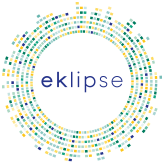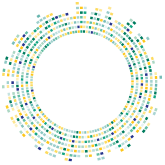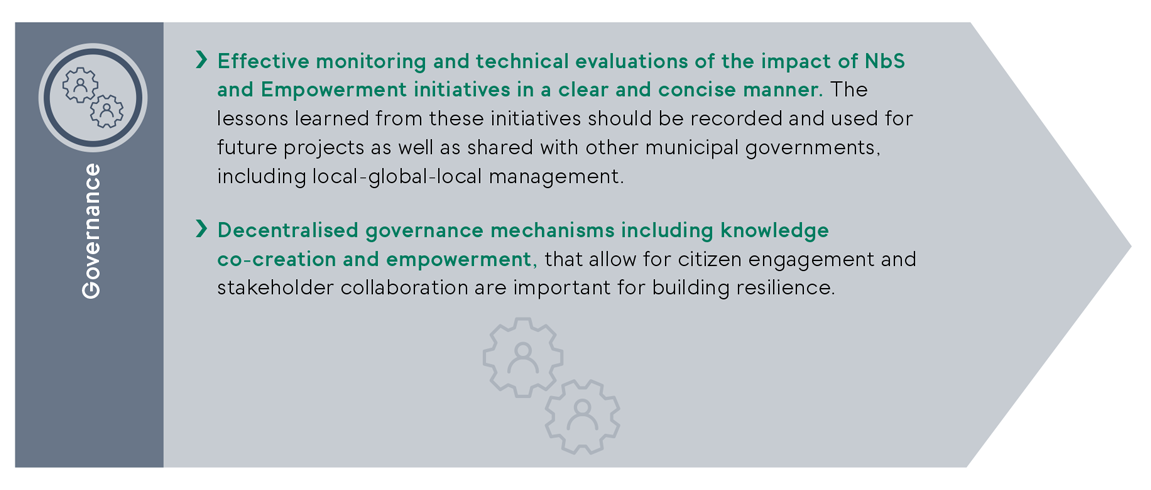Request > Building resilient coastal communities through Nature-Based Solutions (NBS) and Empowerment Tools .
How can community Empowerment Tools (ET) and Nature-Based Solutions (NBS) contribute to addressing coastal challenges and building resilient communities?
Summary
Type of requests: Knowledge Synthesis
These requests were included in the project proposal of the European Union’s Horizon Europe – funded project “Socio-economic EMPOWERment of Coastal communities as USers of the sea to ensure sustainable coastal development” (EmpowerUs) in order to consolidate the development of multiple, integrated and flexible solutions related to the challenges faced by coastal communities and by that allow their smooth transition towards more sustainable, inclusive and resilient coastal development.
– NEW REPORT OUT –
Expert Working Group
- Ina Sieber, Kassel Institute for Sustainability, Kassel University, Germany (Co-chair)
- Jose Ponton Cevallos, Ghent University, Belgium (Co-chair)
- Ananya Tiwari, Atlantic Technological University, Ireland
- Cecilia Gañán de Molina, International consultancy, University of Córdoba
- Mia Prall, Aalborg University & the Danish Coastal Authority, Denmark
- Rita Carrasco, CIMA-University of Algarve, Portugal
Methods Expert Group (MEG)
- Nils Bunnefeld (University of Stirling, UK)
- Spyridoula Ntemiri (Green Fund, Greece)
Knowledge Coordination Body (KCB) focal points:
- Simo Sarkki (University of Oulu, Finland)
-
Anna Fricke (Leibniz Institute of Vegetable and Ornamental Crops (IGZ), Germany)
Eklipse Management Body (EMB) contact points
- Candice Pouget (Helmholtz Centre for Environmental research (UFZ), Germany)
- Marie Vandewalle (Head of Eklipse Management Body; Helmholtz Centre for Environmental research (UFZ), Germany)
Final outputs
Eklipse scoping phase: Survey sent to the EmpowerUs Transition Coastal Labs – November 2022
Document of Work (DoW)- April 2023
Review of the methods protocol (comments from reviewers and responses from the EWG) – February 2024
Final methods protocol – February 2024
Draft report – March 2024
Review of the draft report (comments from reviewers and responses from the EWG) – June 2024
This report was prepared by an Eklipse Expert Working Group (EWG) active from 2023 to 2024. The group undertook Rapid Evidence Assessment (REA) to synthesise the current state of the evidence concerning the role of NbS and community ET in addressing coastal challenges such as climate change across Europe.
According to the results, the majority of studies (60%) addressed NbS and ET together, indicating that the integration of participatory approaches and ET at various stages and levels within NbS projects can effectively foster empowerment, and as a consequence, social ecological resilience. Coastal environments held the dominant presence in NbS studies, whereas the prevailing NbS approaches included Ecosystem-based Adaptation, Ecosystem-based Management. Most of these case studies favored a top-down governance process, focusing on informing or consulting communities rather than actively involving or empowering them.
The current report delivers a catalogue of ET that is transferable and replicable to other geographic contexts, and useful for a multitude of purposes. It is aimed to foster engagement and ownership among coastal communities – a relevant source for planning future NbS projects and coastal Living Labs in Europe and across the world.
Using these results, the EWG formulated recommendations to enhance resilience of coastal communities (see below): a systemic approach; an involved community around a shared vision for the territory; integrated and multi-level governance; integrated and holistic approaches for environmental management; and effective consideration of socio-cultural and socio-environmental diversity as drivers to improve resilience, both in natural and in social spheres.
Coastal communities face many challenges including more extreme weather events associated with climate change, increased pressures from urban development and tourism, as well as changes in traditional and cultural practices.
The project “Socio-economic EMPOWERment of Coastal communities as USers of the sea to ensure sustainable coastal development (EmpowerUs) will support coastal communities to create multiple, integrated and flexible solutions to support their transition towards more sustainable, inclusive and resilient coastal development. The objectives of the project are to 1) co-assess & co-plan six innovative Transition Coastal Labs (TCLs) (see the TCLs in the graphic below), 2) to co-create, test and monitor six pilots for collaborative adaptive empowerment as Transformation Mechanisms, to improve skills in ocean literacy education and awareness-raising and uptake of solutions, to assess, 3) co-monitor and co-evaluate transformation mechanisms’ success and make a transdisciplinary synthesis, understanding the barriers and enabling factors, that can be upscaled, leading to more sustainable, balanced and inclusive coastal development, 4) to support effective knowledge management and transfer to ensure scalability and replicability of project knowledge and improve stakeholder capacity to take direct and sustainable actions.

Timeline
Start of the process: October 2022
Call for knowledge through literature review and survey: October 2022 – January 2023
Call for experts (CfE n°12/2023): opened until April 10th, 2023.
Call for targeted expertise (CfE n°13/2023): open until July 28th, 2023 (EXTENDED)
Call for review of the Methods protocol: until February 2024
Call for review of the draft report: until April 22nd, 2024
Scoping phase
The request has now finalised the first phase within the Eklipse process: the scoping phase. It is guided by an Eklipse subgroup (see the members above) and aims to refine the question, identify how Eklipse could provide an added value by being involved: by increasing the policy relevance, identifying the knowledge and expertise required and provide suggestions regarding methods and resources needed to answer the request.
Challenges and Policy relevance of the request:
Through a preliminary survey to the six Transition Coastal Labs of the EmpowerUs project, Eklipse identified the key challenges faced by those coastal communities:
- Seasonal influx of people and heightened holiday home demands
- Economic development policies favouring some sectors (e.g tourism, fishing) but negatively affecting local people
- Conflicts between different users of the sea and/or with land users
- Decline of fishing stocks
- Lack of career opportunities for professionals/higher educated
- Changing weather patterns
- Loss of coastal biodiversity.
These challenges crosscut key European policy priorities ( EU Green Deal, European Rural Vision, 2021 EU Adaptation Strategy, European Biodiversity Strategy 2030 , Horizon Europe Missions Ocean, UNs Sustainable Development Goals (SDGs) (see the Document of Work above for more precision).
Combination of the two initial requests and reformulation:
Following the survey sent to the Transition Coastal Labs (TCLs) and the discussions that took place among the scoping group, it would be a better decision to merge both requests in a first proposal. But after meeting with the requesters, the scoping group concluded that the request should be reformulated to address better their needs. As a result, the following revision was suggested: “How community empowerment tools and nature-based solutions can contribute to addressing coastal challenges and building resilient communities.”
validation of the Document of Work (DoW):
The DoW described the results of the scoping activities and the background of the request and was the basis for the Call for experts (CfE n°12/2023), opened until April 10th, 2023.
Answering the request
Selection of an Expert Working Group
To answer this request, Eklipse sent out a Call for Expertise (CfE), from which 7 experts were selected in April 2023. In order to complete the EWG, a second targeted call for experts (CfE n. 13/2023) took place in July 2023, from which 3 new members joined the EWG (Figure 4). These experts cover a broad range of transdisciplinary expertise in natural & social sciences, policy & planning, coastal resilience, governance & participation; and also, geographical representation (10 countries) to form the Eklipse Expert Working Group (EWG). As of February 2024, only six experts remain actively involved in the answering process.
Objectives & Methodological Framework
The EWG is now developing a methodological protocol draft based on the DoW, describing the current knowledge gaps and research needs on the topic, and proposes the best methods of knowledge synthesis to address this request.
After considering the request, the EWG and the Eklipse team interacted iteratively during virtual meetings and agreed that the process of responding to the request will include two specific objectives:
- Objective 1. Rapidly review and summarise the current state of the existing evidence concerning the role of nature-based solutions (NBS) and other community empowerment tools in addressing coastal challenges across Europe, as well as critically assess the impact/outcomes of these interventions in fostering empowerment and therefore resilience within these communities.
- Objective 2. Provide inclusive and participative decision-support tools and community engagement scenarios to facilitate the co-creation process of empowerment programs tailored for each TCL.
Following a meeting in September 2023 in Belfast (North Ireland, UK), in which the EWG presented their methodological approach and preliminary results to the EmpowerUs project consortium, it was decided that only the first objective would be needed to suitably answer this request. Therefore, we split this main objective into three specific objectives:
- Specific Objective 1. Rapidly review and summarise the scope and characteristics of the existing evidence on the application for nature-based solutions (NBS) and other empowerment tools to build coastal resilience in Europe and other high-income countries and territories.
- Specific Objective 2. Rapidly review and summarise the scope and characteristics of the existing evidence on the application of empowerment tools (ET) to build coastal resilience in Europe and other high-income countries and territories.
- Specific Objective 3. Conduct a critical assessment of this body of evidence regarding the outcomes/impacts of such interventions in fostering empowerment, in order to identify opportunities and challenges in the integration of NBS with ET.
In pursuit of the overarching and specific objectives outlined previously, the EWG collectively determined that employing a Rapid Evidence Assessment (REA) would serve as an effective literature-based method to swiftly review, synthesise, and evaluate the existing body of evidence concerning nature-based solutions (NBS), empowerment tools (ET) and their integration to the enhancement of coastal resilience and empowerment processes in coastal communities. A comprehensive understanding of the current state of evidence in this domain will furnish the EmpowerUs project with well-informed conclusions and recommendations to install solid interventions in their TCLs.
Finalisation
The draft report developed by the EWG on “Building resilient coastal communities through Nature-based Solutions and Empowerment Tools” was open for review until April 22nd, 2024. The EWG has integrated the comments from this process, and the final evidence report is publicly available on our website from 12/06/2024.








